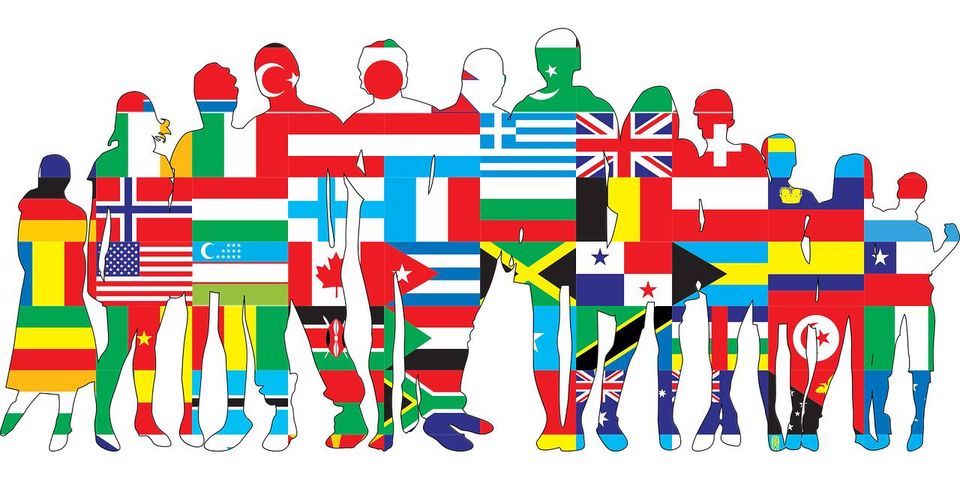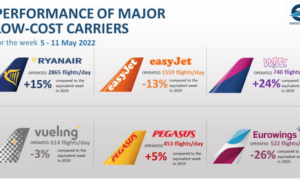The Far Right in Europe and in the United States have a common enemy – “the Internationalists.” On some level, internationalist is code for Jew. But more broadly, the white tribalist see anyone who’s not like them as the enemy. Especially people from what Donald Trump once called the “shithole countries.”
Now, here’s the ironic part. Trump wanted to know why people don’t immigrate to the U.S. from Norway. People more like him. Which as far as anyone can tell hasn’t happened in any meaningful way since 1880. The people who have come to the U.S. since the end of World War II came from Mexico, Iran, India, Cuba and Haiti. Which is the best thing that could have happened.
Why? Because a lot of iconic American companies that were on downward trajectories are suddenly vibrant again due at least in some part because of who’s in charge.
IBM’s CEO? Arvind Krishna, born in India.
Microsoft’s CEO is Satya Nidella, born in India.
Oracle’s CEO is Safra Catz, born in Israel.
Google’s CEO is Sundar Pinchai, born in India
Chrysler’s CEO is Sergio Marchionne, born in Italy.

Global trend
You kinda start to see a trend here, right? And sooner or later, this trend will come to Europe, with Americans, Brits, Indians and other nationalities rising on merit to top corporate slots.
Moreover, internationalist believe in peace and stability through international cooperation, a philosophy that inspired the creation of the European Union. It’s the opposite philosophy of – and antidote to – the corrosive nationalism of Vladimir Putin and Trump.
Economist Milton Friedman once said, “We’re all Keynesians now.” Meaning all economists acknowledge market intervention is necessary to revive stalled economies. In the same way, we’re all internationalists now whether we want to be or not, because internationals are essential to innovation in advanced countries.
From the time that first jet airliner took off from London to Johannesburg in 1952, there has been no going back. Even in my hometown of Louisville, Kentucky – no Miami-style port of entry, that’s for sure – our international community is huge, with recent arrivals from Mexico, Vietnam, Iran, Bosnia and Somalia. These are the people who risk it all to open new businesses, push their children to get educations, and who provide a motivated workforce.
During a business trip home in November, I met with local entrepreneurs with roots in Iran, India and Nigeria.
It’s a global economy now, and internationalists like us increasingly are in charge.
Share traits, shared burdens
So, who are we?
Well, we’re expatriates/immigrants, the people with the courage, energy and vision to move to opportunity.
• We speak one or more foreign languages fluently.
• Our children have grown up attending international schools.
• We have advanced degrees, particularly in STEM subjects.
• We often received our degrees outside our native country.
• Because we are better educated, we tend to be higher earners than locals.
• We tend to be entrepreneurs who invest capital in our host countries and very much contribute to the tax base and to the economy as a whole.
• Because we’re comfortable being uncomfortable, we tend to import our work ethic. Trust me, no one works harder than the Mexican roofer, the Vietnamese convenience store owner and the Indian engineer. Stereotyping? Maybe. But at the heart of the matter, we’re all immigrants, and immigrants have to hustle.
• We have friends from varied backgrounds, though we typically keep our connections to our home countries.
• Our siblings tend have spread out all over the world, which is one of the trade-offs we make– the lack of connection to family.
The future
Our daughter Lale is a prime example of the kind of international who will be a future leader. She graduated from the International School of Eindhoven. Lale got her bachelor’s and master’s from the University of Maastricht here in the Netherlands.
She has friends from Germany, Italy, France, the UK, China and other countries. She’s passed multiple levels of Dutch courses to keep her visa and works for a big American company with operations in the Netherlands.
Of her 22 years, she’s only spent nine years in her hometown (if you can call it that) of Louisville, Kentucky. She was born in Louisville but grew up in Turkey and Germany, and German was her second language by the time she was three years old. By the time she was eight weeks old, she had already been to the U.S., Germany, Turkey and Greece. She didn’t live in the U.S. until she was seven years old.
At ISE and Maastricht, Lale made connections with other internationals just like her, the future leaders with whom she’ll stay connected for the next 50 years. And that’s how internationalists will change the world for the better.
Even though we own a communications company with an expat media arm, I’m not advocating for internationalism. I’m just acknowledging it. It is what it is, and unless we all return to hunting and gathering, it’s going to be how we live and do business. And let’s be honest, the world is a big place, full of brilliant people with brilliant ideas.
Why wouldn’t we all want to leverage that?
Co-CEO of Dispatches Europe. A former military reporter, I'm a serial expat who has lived in France, Turkey, Germany and the Netherlands.















